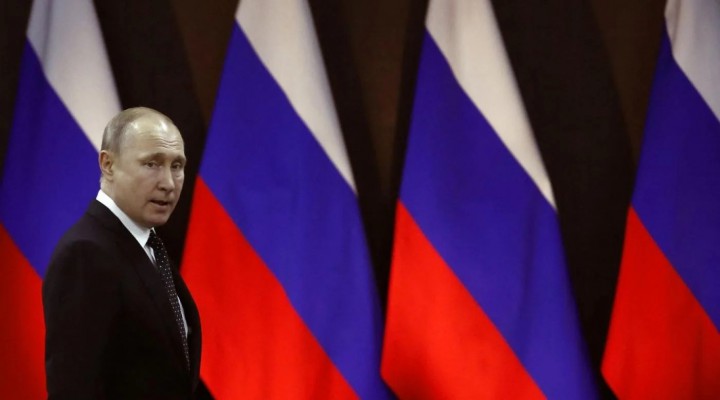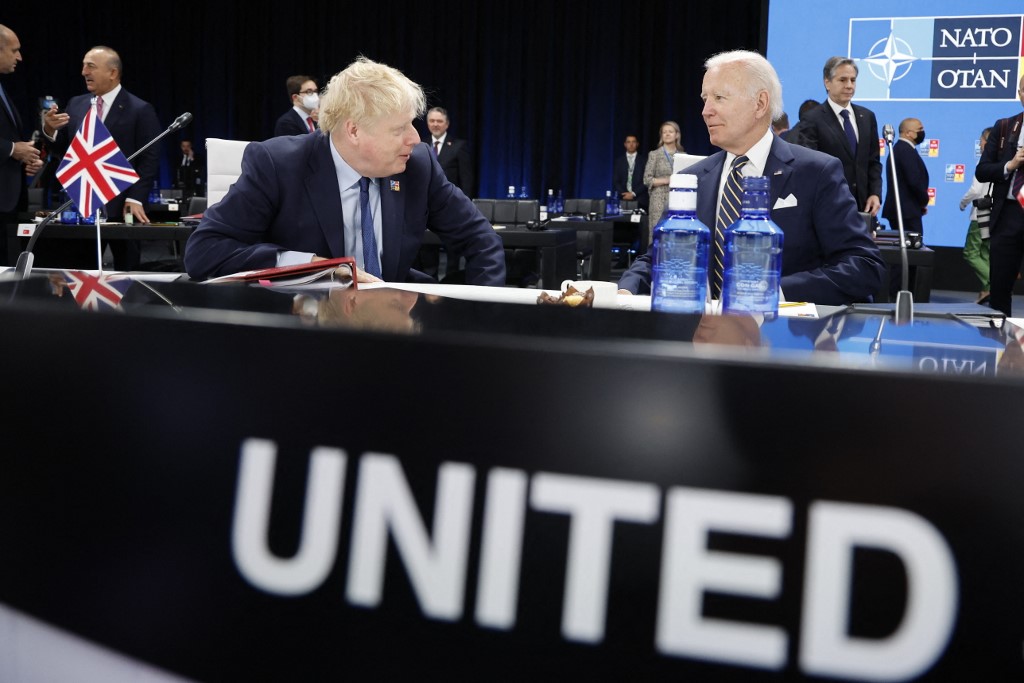Russia-Ukraine war: How the West got it wrong

Liberal democracies were betting on Russia’s collapse. So far, those bets have not paid off
The US and its Nato allies deservedly won the Cold War. The western values of democracy, freedom, human rights, rule of law and market economy prevailed over the Soviet Union’s communist totalitarian system. The latter imploded, broken by its inefficiencies, miscalculation, military overstretch, and delusions. Germany was reunified and the Warsaw Pact dissolved; not a single shot was fired.
The world truly seemed to be headed towards an era of optimism, progress and prosperity. The affirmation of liberal democracy was supposed to embrace the entire planet, and through globalisation, create an economic interdependence that would make war obsolete.
Unfortunately, history turned out differently. The events of 9/11, endless wars in Iraq and Afghanistan, and the global financial crisis of 2008 created a different world.
Three decades on, the global political and economic landscape could hardly be more depressing. The so-called US-led rules-based world order is crumbling. Globalisation seems to be in retreat, economic and energy supply chains have been disrupted, and a global recession is looming. The Covid-19 pandemic has exposed the global economy and social cohesion to unprecedented stress, and democracy also appears to be in retreat.
In 2021, for the first time in American history, a sitting president rejected the outcome of an election (an inquiry is ongoing to ascertain whether he also tried to subvert it). Populism, polarisation, culture wars, and widespread anger and grievances are rising in all western democracies. Governments appear unable to cope with an incredible array of mounting challenges.
Uninspiring leadership
US President Joe Biden is attempting to save his country from itself, and there are increasing doubts that he will run for a second term. In France, President Emmanuel Macron often has the right insights and always attempts to offer a vision, but he is alone in Europe, and weakened in his own country following an inconclusive election. As for Prime Minister Boris Johnson’s Britain, no further comment appears necessary; politically, he is a dead man walking.
Germany is led by an uninspiring and uncharismatic Olaf Scholz, conditioned by a heterogeneous coalition that seems in a state of shock and unable to regain the leadership of the continent. Former European Central Bank president Mario Draghi leads Italy. He is a lauded technocrat, but considering the economic clouds that are gathering, he could become the country’s next insolvency liquidator. The EU, meanwhile, lacks vision and leadership.
Three decades after the end of the sclerotic communist leadership, it is now the turn of western states to be trapped by self-harming groupthink. They are detached from reality and inclined towards miscalculation, incompetence, military overstretch, and delusion – especially those in Europe, who seem so obsessed with Ukraine as to completely ignore that their own countries are disintegrating under the burden of sanctions imposed on Russia.
Post-Cold War US administrations have squandered the huge global political capital inherited with their outstanding victory. Double standards, illegal and unilateral wars, and regime change packaged as humanitarian interventions have progressively weakened the rules-based world order of which western democracies have long boasted.
The West took barely 20 years to put under huge stress the global economic order and market economy through a hyper-financialised and rentier economic model, which generated a huge, unmanageable financial bubble, as well as deep inequalities.
This has generated a populist backlash that is now tearing apart their respective societies. The 2008 financial crisis and the bailout of the main culprits in the US, along with the extreme austerity measures adopted in Europe, have sown massive anger and grievances.
Misleading rhetoric
And western democracies took just 30 years to isolate themselves from the rest of the world, as the bloody war in Ukraine is demonstrating. Nato, the G7 and the EU continue to deceive themselves about global unity against Russia, which is non-existent. As analysts have correctly pointed out, “the West has not been joined by most of the rest”.
The Biden administration is framing tensions with Russia and China as an epic confrontation between democracy and autocracy. It is not – and not even western public opinion adheres to this mantra.
The 2022 Democracy Perception Index, the world’s largest annual study on how people perceive democracy, offers disheartening results: 41 percent of people feel their countries are not democratic enough, and economic inequality – not Russia or China – is considered the primary threat to democracy.
The leaderships in Moscow and Beijing have much to be blamed for, but they have nothing to do with the current threats facing western democracies. These threats are all internal.
Russian aggression towards Ukraine is now largely used as a scapegoat for the ongoing global economic turmoil, but this thesis does not hold up to a sound economic analysis. The war and hasty sanctions imposed on Russia have been merely the ultimate catalyst in an already precarious situation.
Supply chains were already under stress because of the Covid-19 pandemic, which landed on western health systems that were already weakened by decades of budget cuts. At the same time, western states – especially the US – have long since abandoned much of their industrial policy, in favour of outsourcing manufacturing to the Global South. Amid talk of reshoring supply chains, there are looming fears that the labour force – whose purchasing power has already been eroded by inflation – will be asked to bear the costs.
Prepare for the pitchforks
In Germany, the biggest European economy, the city of Hamburg is reportedly mulling hot-water rationing, and for the first time since 1991, the country has registered a monthly trade deficit. The head of the German Federation of Trade Unions has just warned that key German industries could face collapse because of cuts in Russian natural gas supplies. Social and labour unrest are expected. It could be a Lehman Brothers moment for Europe’s economic engine.
An international food crisis could send hundreds of thousands of new refugees from poorer countries towards European borders and shores. It is already clear that they will not be warmly welcomed, as the Ukrainians have been.
Meanwhile, JP Morgan’s worst-case scenario for oil prices is a “stratospheric” $380 a barrel if US and European penalties prompt Russia to retaliate with further output cuts. And inflation is clearly not temporary; indeed, economist Nouriel Roubini has warned: “There is ample reason to believe that the next recession will be marked by a severe stagflationary debt crisis.”
In the 1970s, there was stagflation but not massive debt. Today’s private and public debt levels as a share of global GDP are much higher than in the past, rising from 200 percent in 1999 to 350 percent today (global debt is now around $300 trillion). Facing such conditions, Roubini warns, “companies, financial institutions, and governments [could be driven] into bankruptcy and default”.
What economists call a “soft landing” of the world economy appears increasingly out of reach. The calculus of liberal democracies with regards to the outcome of the Ukraine conflict, Russia’s collapse, global unity and the capacity to diversify energy supplies, have so far turned out to be wrong. There was no prediction made on the global impact of sanctions.
The EU, G7 and Nato recently held their own summits, where everything appeared to be business as usual; not a single shred of evidence emerged about a forthcoming policy review. Western leaders prefer to keep going with their miscalculations, incompetence and delusions. Their policy has been reduced to a variation of “let’s try and see what happens” – on a global scale.
The summer may buy them some time, but come autumn, they should prepare for the pitchforks. Not to worry, though – they will blame Russian President Vladimir Putin all the way, and most people will believe them.
https://www.middleeasteye.net/opinion/russia-ukraine-war-how-west-got-it-wrong
 TheAltWorld
TheAltWorld 

0 thoughts on “Russia-Ukraine war: How the West got it wrong”